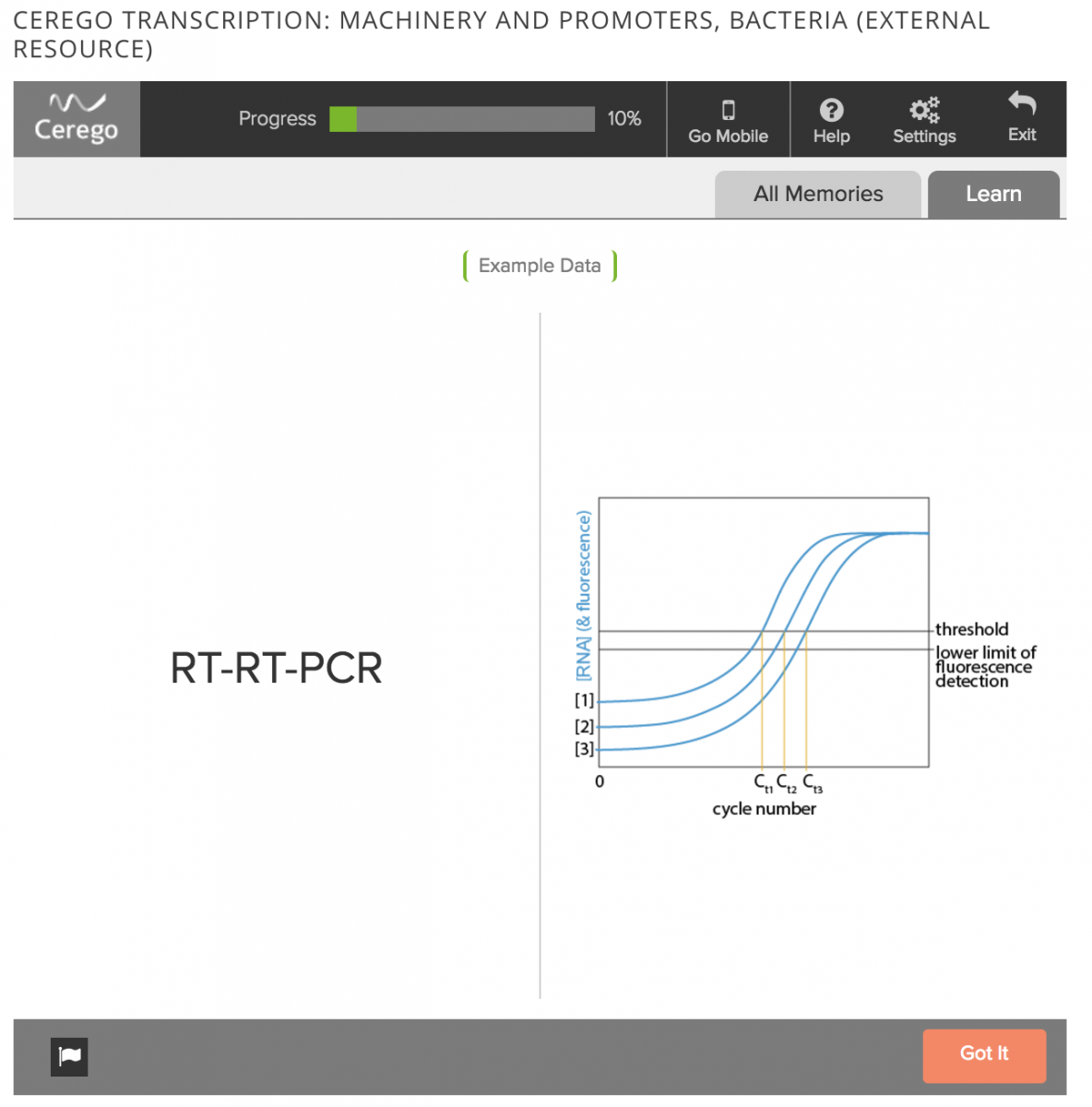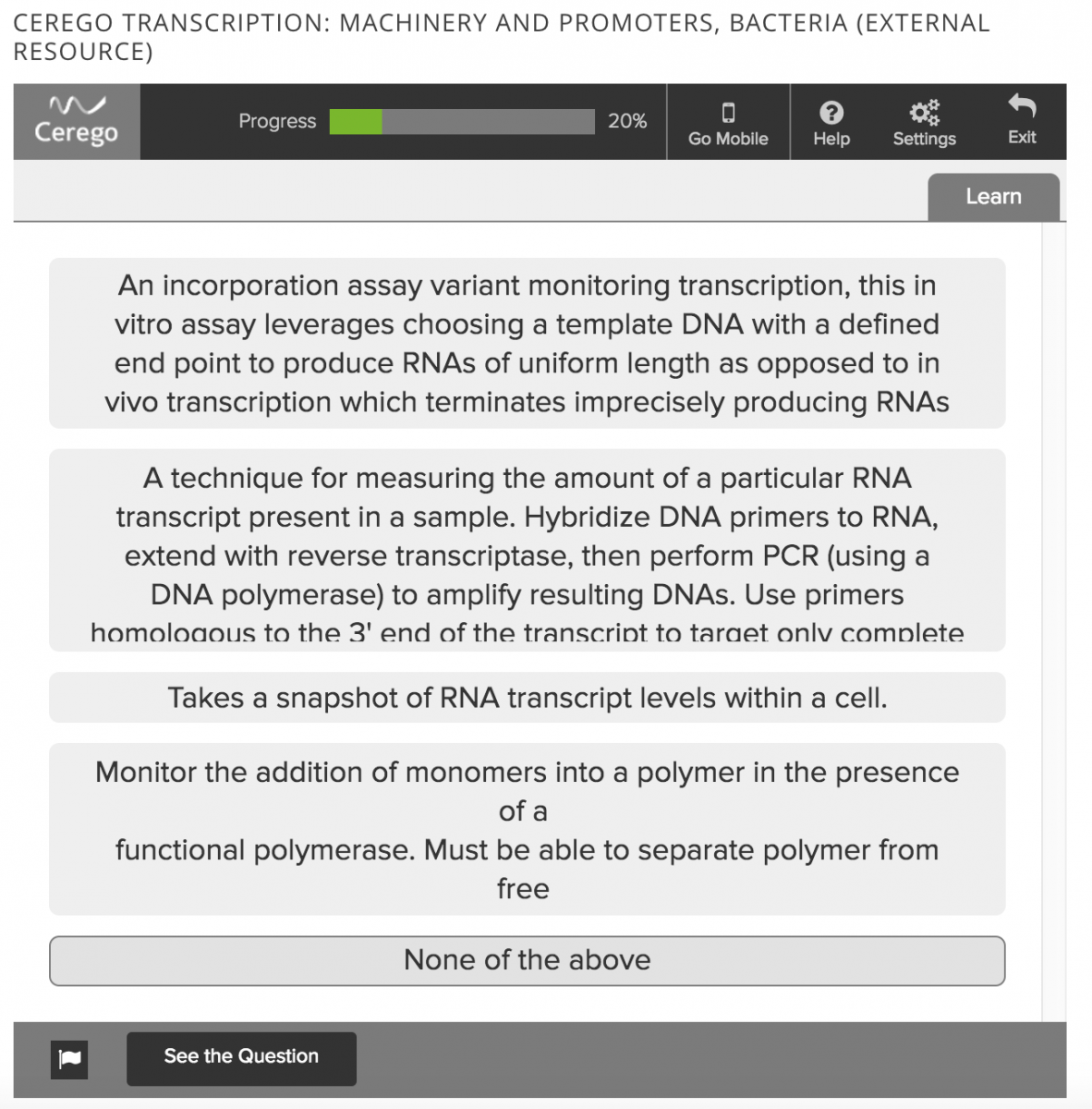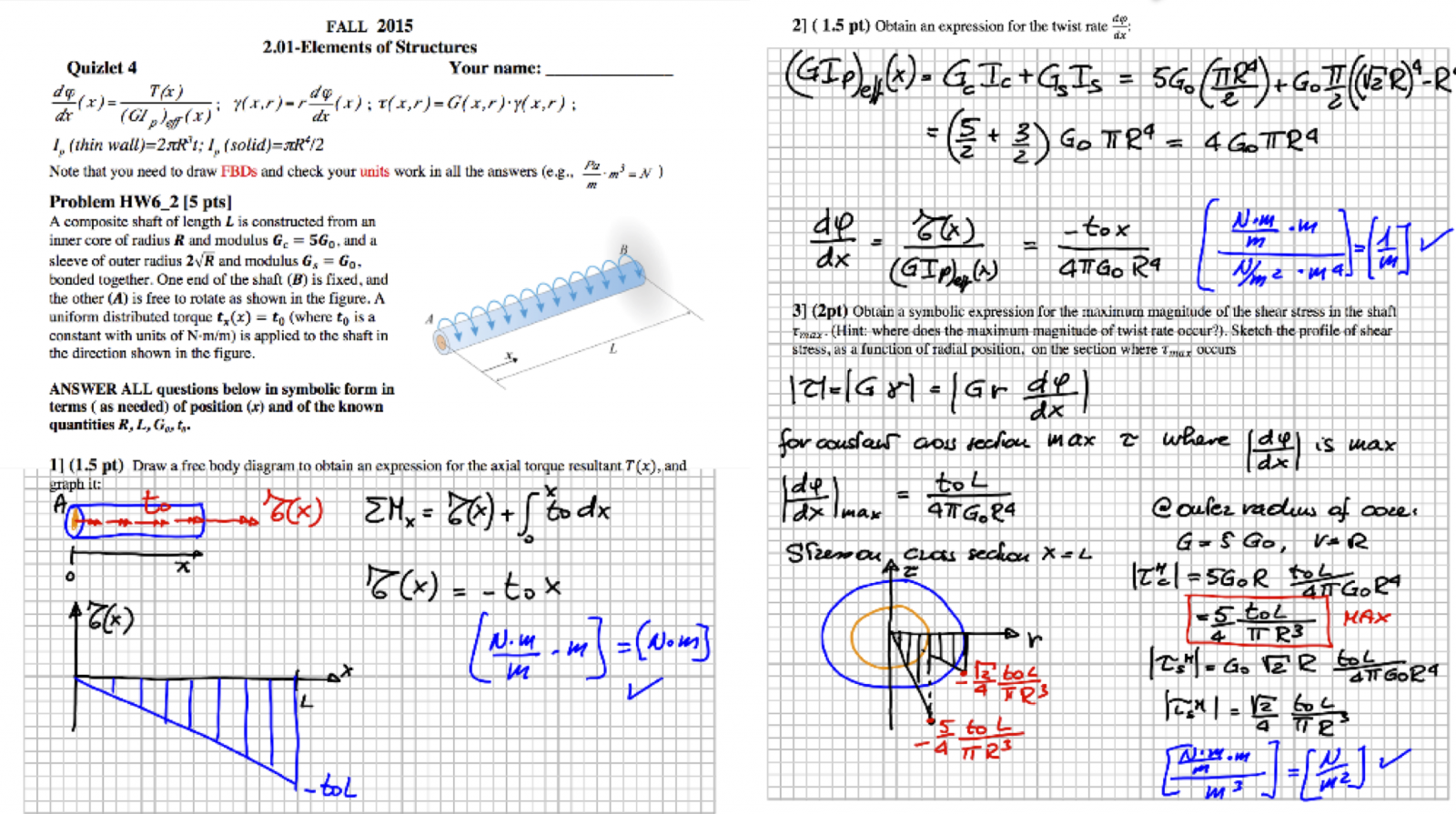The ability to recall and remember knowledge increases if it is periodically retrieved. The act of retrieval solidifies learning, particularly when feedback is provided.
- Administer low-stakes quizzes frequently. The act of testing themselves not only allows students to know what they don’t know, but enhances their ability to retain what they do know.
- Think about leveraging question and quiz features available in digital platforms including Canvas, Panopto, Gradescope, and Residential MITx.
8.01, 8.02 Physics | Michelle Tomasik:
Dr. Michelle Tomasik implemented alterative assessments and assignments in her 8.01 and 8.02 courses, giving students bi-weekly low-stakes quizzes in MITx. This approach to frequent low-stakes testing allowed students the opportunity to pause and reflect on their learning over the previous two weeks. Read more about these assessments and the associated outcomes here.
6.341 Electrical Engineering & Computer Science | Alan Oppenheim:
In 6.341, students get retrieval practice both in and outside of class, while Prof. Oppenheim gets feedback about how students are relating to the material. In class, students answer problems using clickers. Outside of class, students complete psets in MITx, receiving immediate feedback on their answers. Read more about the use of clickers and MITx in 6.341 here.
8.02 Physics | John Belcher & Saif Rayyan:
In 8.02, Prof. Belcher and Dr. Rayyan used the MITx platform to code homework problems so students were able to immediately check both intermediate and final answers. This feedback system really helped students learn from their mistakes. Read more about MITx in 8.02 TEAL here.
7.28/7.58 Molecular Biology | Stephen Bell & Tania Baker:
In 7.28/7.58, students are required to answer low-stakes questions on the course's MITx site about each lecture before the beginning of the next lecture. This encourages students to retrieve and consolidate lecture content through frequent testing, which has been shown to be a more effective studying strategy than reviewing content by re-reading text or watching videos only.
In addition, 7.28/7.58 uses a flash card program to facilitate retrieval of seminal course content. Students in this course need to understand many molecular assays to answer questions on experimental analysis and design. Most of the students in the course have not performed these assays themselves in the lab, making it difficult for students to know when they are used and why. Cerego flash cards are embedded within each unit in MITx to provide students with opportunities to learn and test their knowledge of these assays throughout the course.


14.73 The Challenge of World Poverty | Esther Duflo & Abhijit Banerjee:
Pop quizzes are randomly administered throughout the semester. In addition to providing opportunities for retrieval, pop-quizzes are “a terrific tool to ensure that students came to class prepared…ready to contribute their own thoughts and ideas based on the readings.” In 14.73 pop quizzes count towards 8% of the overall course grade.
2.01 Elements of Structures | Simona Socrates:
Four days after each problem set is due, students in 2.01 are given an in-class quiz that tests the problem set concepts. Quizzes are worth 25% of students’ overall grades.

Key resource:
- Roediger, H. L., & Butler, A. C. (2011). The critical role of retrieval practice in long-term retention. Trends in Cognitive Sciences, 15(1), 20–27. DOI
Additional:
- Carpenter, S. K., & Pashler, H. (2007). Testing beyond words: Using tests to enhance visuospatial map learning. Psychonomic Bulletin & Review, 14(3), 474–478. DOI
- Carpenter, S. K., Pashler, H., Wixted, J. T., & Vul, E. (2008). The effects of tests on learning and forgetting. Memory and Cognition, 36(2), 438–448. DOI
- Dunlosky, J., Rawson, K. A., Marsh, E. J., Nathan, M. J., & Willingham, D. T. (2013). Improving students' learning with effective learning techniques: Promising directions from cognitive and educational psychology. Psychological Science in the Public Interest, 14(1), 4–58. DOI
- Karpicke, J. D., & Roediger, H. L. (2008). The critical importance of retrieval for learning. Science, 319(5865), 966–968. DOI
- Lyle, K. B., & Crawford, N. A. (2011). Retrieving essential material at the end of lectures improves performance on statistics exams. Teaching of Psychology, 38(2), 94–97. DOI
- McDaniel, M. A., Agarwal, P. K., Huelser, B. J., Mcdermott, K. B., & Roediger, H. L. (2011). Test-enhanced learning in a middle school science classroom: The effects of quiz frequency and placement. Journal of Educational Psychology, 103(2), 399–414. DOI
- McDaniel, M. A., Thomas, R. C., Agarwal, P. K., Mcdermott, K. B., & Roediger, H. L. (2013). Quizzing in middle‐school science: Successful transfer performance on classroom exams. Applied Cognitive Psychology, 27(3), 360–372. DOI
- Roediger, H. L., III, & Karpicke, J. D. (2006). Test-enhanced learning taking memory tests improves long-term retention. Psychological Science, 17(3), 249–255. DOI
- Roediger, H. L., Agarwal, P. K., McDaniel, M. A., & Mcdermott, K. B. (2011). Test-enhanced learning in the classroom: long-term improvements from quizzing. Journal of Experimental Psychology, 17(4), 382–395. DOI
- Roediger, H. L., III, Putnam, A. L., & Smith, M. A. (2011). Ten benefits of testing and their applications to educational practice. Psychology of Learning and Motivation (Vol. 55, pp. 1–36). Elsevier. DOI
- Wyner, G. (2014). The gallery: a guide to the flash cards thta will teach you your language. In Fluent forever (pp 117-241). Harmony Books.




